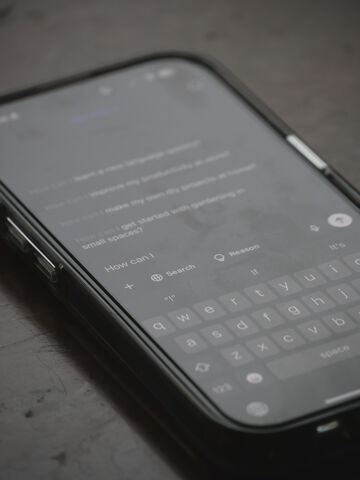The American federal government has not enacted any laws that place limits on the use of artificial intelligence (AI). This could threaten the employment and education of millions of citizens in the near future.
The future of American employment and the value of education could be at risk if the federal government does not enact laws limiting the use of artificial intelligence.
Artificial intelligence has grown in power and is constantly in use as of 2025. It is continuously being tested, improved, and incorporated into our everyday lives. From ChatGPT to eerily realistic human models, AI’s seemingly unlimited power is beginning to pose a threat to the future of American citizens. KSU students expressed their rising concern over the use and lack of federal regulation regarding AI.
“[AI is] going to either aid in our destruction or cause it completely,” KSU sophomore Quincy Frontiera said. “Instead of using it to advance society, we’re…using it for school, depleting the intelligence of the average American, and making Tesla robots. We need to be using it for medicine, science and cures.”
Frontiera isn’t wrong – AI is beginning to be used in healthcare for this exact reason. In fact, healthcare assistance roles, along with marketing, admin, retail, food service and transportation roles are among the most at-risk jobs for being taken by AI, according to an article on the Hypotenuse AI website.
Moreover, according to Hypotenuse AI, artificial intelligence is expected to replace 2.4 million jobs in America by 2030, with around 400 to 800 million citizens losing employment to AI. In the workplace, AI incorporation threatens worker’s benefits, safety, health, data and their overall position, according to American Progress.
Another issue that emerged with the development of AI is American students’ ability to fabricate their education and academic success. As Frontiera said, students now use AI for school, making their education less valuable when used improperly.
According to the California Department of Education, teachers and students alike are encouraged to use AI for educational purposes, which is especially notable considering that AI will likely become an integral part of the future of academia.
However, the biggest concern surrounding the use of AI in education is the increasing amount of cheating and plagiarized work. According to the College of Education at the University Illinois, precautions need to be taken by educators to prevent academic misconduct of AI. After all, imagine going to a wellness check in 2028 with a doctor who earned their degree with the generous help of ChatGPT.
“I think AI is becoming a real hindrance to society. There has been more use of AI in schools, and it’s making me question: ‘do we even deserve our degrees?’” KSU sophomore Jazmine Sharp said. “If we’re frequently using AI to do our work and heavily relying on it, did we earn the right to say, ‘I made it’?”
AI has plagued academic integrity. Our future engineers are using Photomath to solve equations. Our future educators are using ChatGPT to write their pedagogical essays. Without more advanced laws and national regulation on AI use in education, the value of a degree may decline overtime.
A few bills have been introduced to Congress surrounding AI usage, but it is not enough to prevent the consequences that its expansion could cause. Substantial, established steps must be made at a national level- and soon. Americans are at risk of being unemployed and intellectually devalued if the federal government does not step in to regulate AI and protect citizens from its possible ramifications.



